Anthropology Faculty
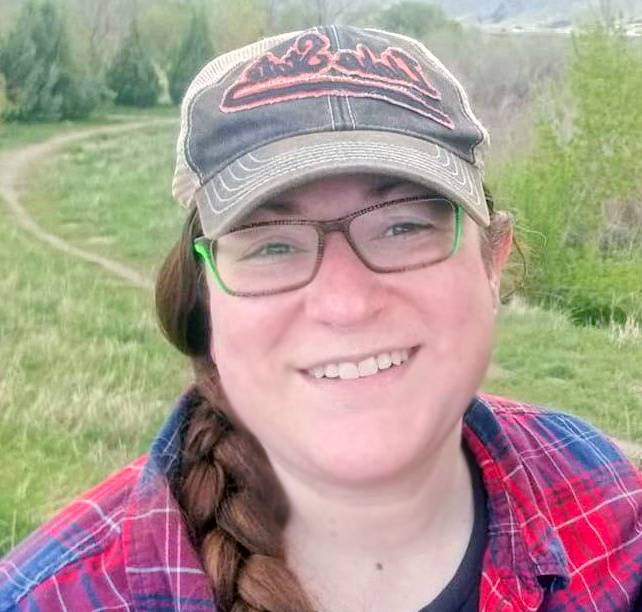
*Samantha Blatt, Ph.D.
Associate Professor
208-282-4017
samanthablatt@isu.edu
Graveley 157
Background
Dr. Samantha Blatt is currently an Assistant Professor at Idaho State University. She received her Ph.D. from Ohio State University in biological anthropology with an emphasis on bioarchaeology and dental anthropology. Her research interests have focused on histological microstructures of dental and skeletal tissues, disease, growth and stress, ancient childhood in North America, forensic and archaeological taphonomy, diagenesis of teeth, microscopic imaging, and individualizing skeletal traits. She is particularly interested in biocultural perspectives to answer broad anthropological questions, using innovative methods (such as forensic genealogy and histology) to revitalize forensic cold cases and medicolegal investigations involving marginalized victims, has extensive experience with NAGPRA repatriation, forensic anthropology involving tribal, state, and federal agencies. Her work with museum collections and preservation offices includes analyses of 40,000 year old canids, shrunken heads, prehistoric and historic dental calculus, cannibalized remains from the Cook Islands, an Incan mummy, and more.
Community outreach, interdisciplinary engagement, and inclusion of descendant population voices and worldview is foundational to my research design, teaching, and personal advocacy. I believe in interactive, inclusive, and innovative learning approaches to accommodate diverse learning styles. Student research is paramount. I energetically invite students to work with me to hone their skills, learn new ones, and pursue their own research interests to grow as scholars and anthropology activists. Outside of campus life, I find time to enjoy archery, knitting nerd-inspired accessories, fishing, carving bone ornaments, perfecting my BBQ/smoking skills, collecting curious rocks, meandering through flea markets, and going on adventures with my bulldogs.
Consulting Services: Archaeological and forensic search, recovery, excavation, and skeletal and dental analyses of human and faunal remains.
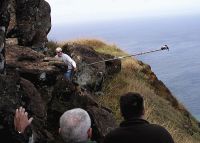
*John Dudgeon, Ph.D.
Associate Professor and Director of CAMAS
208-282-3862
johndudgeon@isu.edu
Graveley 164
Background
B.A., University of Colorado (1990); M.A., University of Washington (1998); Ph.D., University of Hawai'i (2008).
I am an assistant professor of anthropology and Director/research scientist at the Center for Archaeology, Materials and Applied Spectroscopy (CAMAS) at Idaho State University. I consider myself an interdisciplinary bioarchaeologist; since coming to ISU I have partipated as affiliate faculty within ISU’s Program for Environmental Science (2010-2011), the Department of Biological Sciences (2011-2012), and the Molecular Research Core Facility (2010-present). I currently serve as Affiliate Curator of Archaeology at the Idaho Museum of Natural History. In addition to my teaching and mentoring responsibilities, I direct and coordinate research activities in the ISU Ancient DNA Extraction Laboratory (ADEL), and also lead the trace element research group in the Interdisciplinary Laboratory for Isotopic and Elemental Analysis (ILIEA), a division of CAMAS. I utilize my laboratory affiliations to direct student research and teach advanced methods in bioarchaeology, archaeological chemistry (with a focus on elemental and isotopic biogeochemistry), and microfossil and residue analysis. Please see my Ongoing Research section for a list of the projects I'm actively working on, including those of my current M.S. students.

*Richard Hansen, Ph.D.
Affiliated Researcher
208-436-9185
hansric2@isu.edu richardhansen4@isu.edu
Graveley 153
Background
Dr. Richard D. Hansen is a specialist on the early Maya and is the Director of the Mirador Basin Project in northern Guatemala. He has been conducting archaeological research and scientific studies in northern Guatemala for 38 years. He is an Affiliate Research Professor at Idaho State University, after serving as an Adjunct Professor of
Anthropology at the University of Utah from 2014 to 2021. He was formerly Research Professor in the Department of Anthropology at Idaho State University for 8 years and was Senior Scientist at the Institute for Mesoamerican Research at ISU. Prior to that, he was Assistant Research Scientist (Level IV) at the UCLA Institute of Geophysics and Planetary Physics for 12 years. He is the founder and president of the Foundation for Anthropological Research and Environmental Studies (FARES), a non-profit scientific research institution based in Idaho. He graduated with a Ph.D. in Archaeology from UCLA in 1992 as a National Graduate Fellow, a Jacob Javits National Fellow, the UCLA Hortense Fishbaugh Memorial Scholar, the UCLA Distinguished Scholar (1988), a Fulbright Scholar (Guatemala) (1989-1990), the UCLA Outstanding Graduate Student (1991), and the UCLA Chancellor's Marshall with highest honors (1992). He previously held a double major B.S. degree (cum laude) in Spanish and Archaeology from Brigham Young University in 1978, and a M.S. degree in Anthropology in 1984. He has published 3 books (2 as series editor), and is the editor of three more volumes currently in preparation. In addition, he has published 196 papers and book chapters in scientific and popular publications and has presented more than 400 professional papers and technical reports in scientific formats and symposia throughout the world. He has conducted and/or directed archaeological research in Israel, the U.S. Great Basin, U.S. Southwest, and Central America.
Dr. Hansen was recently named as “one of 24 individuals that changed Latin America” by Bravo Association, Latin Trade Magazine, Dec. 2013). He was awarded the highest civilian award possible in Guatemala, the Gran Cruz of the Order of Quetzal on March 9, 2017 in the National Palace of Guatemala by President Jimmy Morales and Minister Jose Luis Chea and again, on the summit of Danta Pyramid at El Mirador a week later. He received the prestigious “Orden de la Monja Blanca) (highest civilian award possible) from the Ministry of Defense of Guatemala in November 2019. He was named the 2014 Kislak Lecturer at the U.S. Library of Congress, and was honored as the“Chevalier des Arts et des Lettres” of the “Ordre des Arts et Lettres” by the French Ministry of Culture in 2012. He was awarded the prestigious “Orden del Pop” by Francisco Marroquin University in Guatemala in 2012. He was awarded the highest Idaho State University Achievement Award 2009 and was named Environmentalist of the Year in Latin America 2008 by the 161,000 members of the Latin Trade Bravo Business Association. He was awarded the National Order of the Cultural Patrimony of Guatemala by Guatemalan President Oscar Berger in December 2005. He was the founder of the renowned Dialogue of Civilizations Conferences hosted by the National Geographic Society, with recent conferences in Guatemala, Turkey, and China and more scheduled for India and Egypt. Hansen was the co-founder of the Guatemala-China Association for Culture, Tourism and Sports based in Guatemala City. Hansen’s research in the remote rainforests of northern Guatemala currently involves scholars from dozens of universities and research institutions from throughout the world. As a project, his team has currently published 322 scientific papers, abstracts, and book chapters, and 1209 technical reports and scientific presentations, and his project has mapped and excavated in 51 ancient cities in the Mirador Basin.
Mirador Basin Project Publications
Hansen’s studies have identified some of the largest and earliest ancient cities in Central America, and his work has been an important contribution to the developmental history of Maya civilization. His work and conservation programs have been crucial in the conservation and protection of 810,000 acres of tropical forest in Guatemala. He was the Co- organizer of the major Maya exhibit from June to October 2011 at the Quai Branly Museum in Paris, entitled Maya: From Dawn to Dusk. His work has recently been featured in 36 film documentaries, including National Geographic Specials, the Learning Channel, the Discovery Channel, Discovery Channel 3Net, ABC's 20/20, 60 Minutes Australia, ABC’s Good Morning America, ABC’s Primetime Live, CNN International Untold Stories, CNN Global Challenges, The History Channel, British Broadcasting Corporation (BBC) of London, Russia 1 Television, Alstom Foundation Films, Timeline Films (London), WGBH Television, Storybook Productions of Germany, Guatevison, and recent five episodes on Discovery Channel (“Expedition Unknown” and “After the Hunt”) (May-June 2018, Sept. 2019). He was the principal consultant for Mel Gibson’s movie, Apocalypto and CBS Survivor, Guatemala and participated with Morgan Freeman in “The Story of God”. Dr. Hansen and his wife, Jody, live with their children in Idaho and Guatemala.

Georgia Hart-Fredeluces
Assistant Professor
Graveley Hall
Dr. Georgia Hart-Fredeluces is an ethnoecologist whose specializes in studying contemporary environmental caretaking relationships between people and nature with an emphasis on the relationships of Indigenous Peoples to wild-gathered and culturally-significant plants. Her research spans the social and natural sciences to explore the intertwined social and ecological characteristics of sustainable and socially equitable systems of environmental stewardship and how these have been sustained through European colonialism. Her recent work has been focused in southern Idaho as well as the Philippines, including collaborative work with the Shoshone-Bannock Tribes. She employs interviews and surveys, as well as ecological field methods to answer research questions related to social-ecological resilience under changing conditions. She approaches her work with Indigenous Peoples, Tribal Nations, and local communities as an ally through the lens of restorative justice with the aim to work collaboratively to support the goals and priorities of Tribal Nations and Indigenous Peoples. She is also research personnel on a National Science Foundation EPSCoR grant, “Idaho Community-engaged Resilience for Energy-Water Systems” (ICREWS) at Idaho State where she examines how local knowledge and diverse ways of knowing can support equitable and resilient energy-water futures in Idaho. In addition, she conducts research in the areas of more-than-human qualitative methods, the science of community engagement, and ethnobotany.
Outside of work, she is a mother of twin toddlers, and mostly explores the world through their eyes these days. She enjoys hiking, botanizing, gardening, card games, and most sports. She loves working with students, and if you are undergraduate or graduate student interested in environmental anthropology, ethnoecology/ethnobotany, Indigenous ecologies, native plants, and/or natural resource management please feel free to reach out. Dr. Hart-Fredeluces is particularly interested in mentoring projects that are Tribally-engaged or community-engaged, and/or which weave traditional knowledges with social and/or environmental sciences.
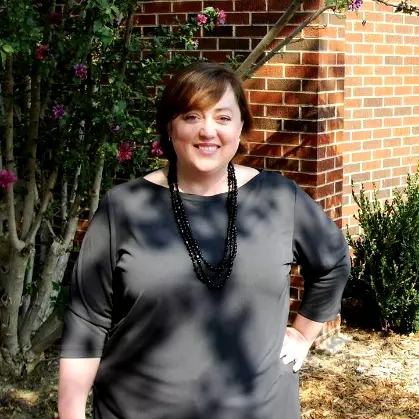
*Elizabeth A. Redd, Ph.D.
Assistant Professor, Director of American Indian Studies
208-282-1153
lizkickham@isu.edu
Graveley 163
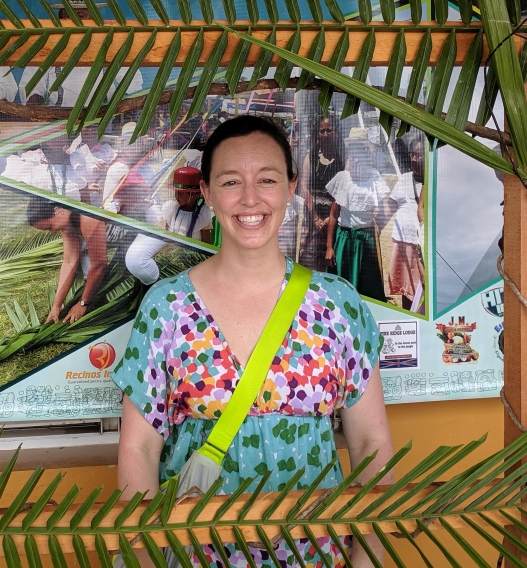
*Kirsten Green Mink, Ph.D.
Assistant Professor
208-282-1062
kirstenmink@isu.edu
Graveley 157
Background
My background is in North American archaeology and have worked in the Southwest, Great Basin, Pacific Northwest, and California. I discovered my interest in human remains while still in undergrad and pursued an MA and PhD at the University of Montana in Physical Anthropology with a focus on Forensics and Bioarchaeology. My dissertation brought me to Mesoamerica and the Belize Valley Archaeological Reconnaissance (BVAR) project. The focus of my dissertation was to use a comprehensive stable isotope analysis on both tooth and bone material from burials at the site of Cahal Pech. The chemical data along with mortuary data showed patterns in mobility among some elite Maya of the Classic period. My current research is looking at the role of Sulfur in the lives of the Classic Maya and to identify socio-political connections with other sites outside the Belize River Valley based on Strontium isotope values. I am particularly interested in understanding individual movement using bone and tooth chemistry. I am the project osteologist for BVAR and have continued research with the project.
I took on Forensic Anthropology because of my background in human remains analysis and my expertise in bioarcheological excavation. I worked as the Forensic Anthropologist for the State of Montana for four years. I am passionate about working with indigenous communities on the Missing and Murdered Indigenous Peoples movement. I also work with law enforcement on forensic casework and trainings.

*Katherine Reedy, Ph.D.
Professor and Department Chair
208-282-6137
katherinereedy@isu.edu
Graveley 151
Dr. Reedy received her PhD from the University of Cambridge (Pembroke College) in Social Anthropology in 2004 with an emphasis on arctic cultures, natural resource economies, and environmental policy. Dr. Reedy is a sociocultural anthropologist conducting ethnographic research primarily in the communities of the Alaska Peninsula, Aleutian Island Chain, and Pribilof Islands. Her primary research is investigating the role of traditional commercial and subsistence economies in the construction and maintenance of indigenous Aleut/Unangax̂ identity and village sustainability. Research projects have spanned topics involving indigenous rights and representations of identity, Aleut/Unangax̂ culture and history, ecological anthropology, ethnohistory, economic development, subsistence and commercial fisheries, local knowledge of food harvesting and ecology, oil and gas development, energy development, and environmental and fisheries policymaking. In addition to ongoing ethnographic work, current projects investigate the marine historical ecology of the Pacific cod fishery and the integration of marine energy resources into the existing infrastructure of coastal communities. Dr. Reedy accepts graduate students with interests in any area of inquiry related to indigeneity and applied anthropology. Raised on a farm in Idaho, and having raised two sons in Pocatello, her family enjoys downhill skiing, hiking, fishing, snowmachining, urban farming, and travel adventures.

*Charles A. Speer, Ph.D.
Associate Professor, Curator of Anthropology at Idaho Museum of Natural History, Director of Graduate Studies
208-282-4906
charlesspeer@isu.edu
Graveley 162
Dr. Speer is not accepting new eISU (online) graduate students for the 2023-2024 school year.
Background
I was born and raised in South Texas. I received my PhD from the University of Texas at San Antonio in Ecological Anthropology in 2013. Following graduation, I served as a post-doctoral researcher at Texas State University in the Department of Anthropology and worked primarily with Clovis Period materials from the Gault Site. My research focuses on geochemical analysis of knappable stone to determine mobility patterns of prehistoric hunter-gatherers. My current work focuses on sourcing Paleoindian and Protohistoric artifacts from the American Southwest. For this research, it is integral to engage Native American perspectives as they relate to indigenous knowledge of ecological resources and archaeological findings.
My other research areas focuses on interdisciplinary approaches to understanding the Peopling of the New World, lithic technology, experimental archaeology, ancient craftmanship, and GIS predictive modeling. My greatest goal is to be a positive influence and mentor to students! I have been an avid flintknapper and prehistoric skills enthusiast for over 20 years. I personally enjoy fishing, hunting, hiking, and kayaking.
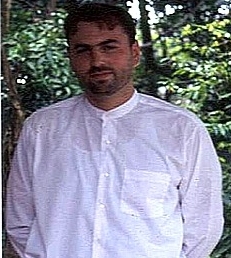
Lewis Thomas, M.A.
Senior Lecturer
208-282-5730
lewisthomas@isu.edu
Graveley 261
Background
M.A., ABD (University of Illinois at Urbana-Champaign)
Research Interests
Thomas has carried out extensive research in Burma (Myanmar) since 1996. Doctoral research was funded by the Wenner-Gren Foundation and the University of Illinois, and focused on the development of tourism in Burma (Myanmar) and related processes of social change. Other research interests include globalization, post-colonial theory, and the anthropology of Mormonism.
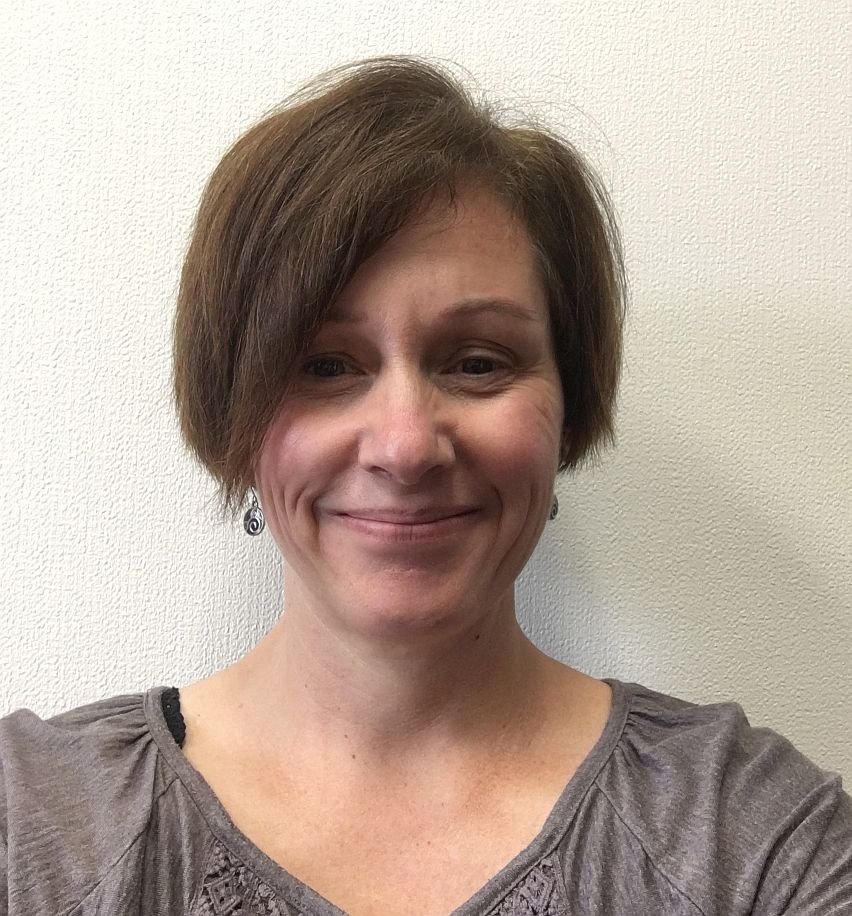
Kristy Buffington, M.A.
Adjunct Lecturer
208-282-2629
kristybuffington@isu.edu
Graveley Hall 156
Kristy Buffington teaches an introduction to the anthropology of disability course. In addition to teaching, she is the Post-Secondary Transition Coordinator for the Idaho Educational Services for the Deaf and the Blind (IESDB) and directs the IESDB Post-Secondary Transition Program. IESDB post-secondary transition services are available statewide to deaf, hard of hearing, blind and visually impaired young adults, age 14-26, and Kristy spends much of her time traveling the state and meeting with students and their families. Additionally, she is the team lead for the Idaho Coalition on Transition with Deaf and Hard of Hearing Youth and the state liaison for the National Deaf Center on Postsecondary Outcomes.
Before devoting her professional time to ISU and IESDB, she worked as a professional certified American Sign Language (ASL) interpreter for over twenty years. Outside of work, Kristy is married and has two teenage children. Her family loves animals and has a small zoo of rescues at their house, including four dogs, two cats, two rabbits, a bunch of fish and a frog. In her free time, she also likes to read and make glass mosaics.
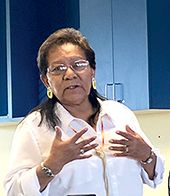
Drusilla Gould
Adjunct Lecturer
208-282-2629
drusillagould@isu.edu
Graveley Hall 155
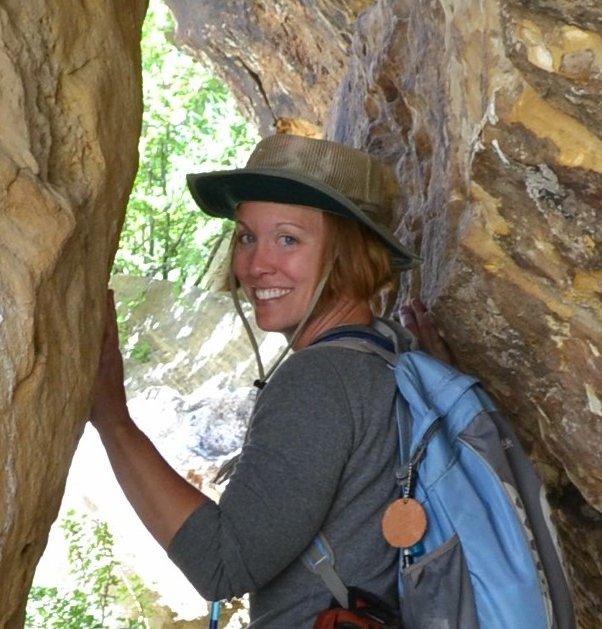
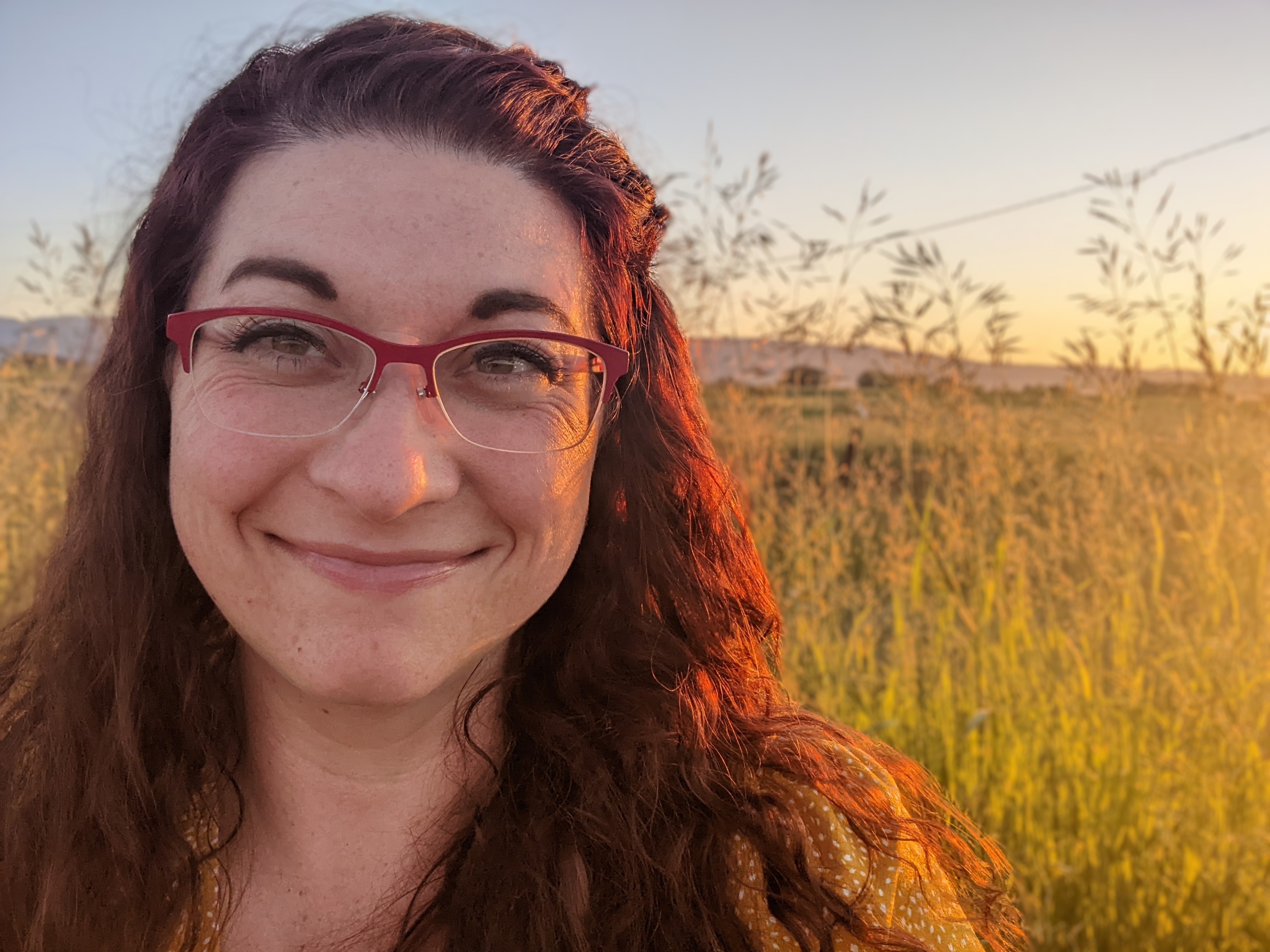
Melissa Taysom
Adjunct Lecturer
melissawilson@isu.edu
Melissa graduated from ISU with a Master's of Science in Sociocultural Anthropology in 2023. Her thesis work focused on the impact of amenity migration and the resulting social, economic, and environmental changes on the subjective well-being of small-scale farmers and ranchers in Teton Valley. She hopes to eventually broaden this research to include other rural areas in the state. Her current research interests are homelessness and social vulnerability related to socioeconomic status, how individuals interact with and depend on social, economic and environmental factors to pursue/achieve wellness, and how individuals strive to obtain/maintain health and well-being. She's interested in Anthropology as a whole but specifically the environmental, economic and medical subfields. Teaching is one of her passions and she has experience teaching in Russia, China and here in the U.S. at all grade levels from grade school to graduate school.
Languages Faculty
.jpg)
Tamra Bassett
Senior Lecturer, Spanish | Spanish for Health Professions Advisor
(208) 282-2766
tamrabasset@isu.edu
Lindsey Beckstead
Adjunct Instructor, French
lindseybeckstead@isu.edu

Svetlana Brainard
Adjunct Instructor, Russian
svetlanabrainard@isu.edu
Joseph Cardello
Adjunct Instructor, Japanese
josephcardello@isu.edu
.jpg)
Lisa Coffield
Adjunct Instructor, German
lisacoffield@isu.edu
Lisa Coffield, Adjunct Instructor, German. M.S. in Linguistic Anthropology (Idaho State University 2016), B.S. in Secondary Education, Emphases in German and French (Idaho State University 2009). She has been teaching at ISU since the Fall of 2010, and teaches first-year German. Lisa is certified to teach both German and French.
.jpg)
Dr. Carmen Febles
Associate Professor, Spanish
(208) 282-1014
carmenfebles@isu.edu
Carmen Febles is an Associate Professor of Spanish Language and Latin American Cultures in the Department of Global Studies and Languages with a specialization in 18th and 19th century Mexico and Cuba at Idaho State University. Broadly speaking, Dr. Febles is interested in distance and difference – in points of articulation across Spanish-speaking geographies, social hierarchies, genres and time periods. Her literature and culture publications include “Exploring the limits of transculturation: Pérez Firmat’s a Cuban in Mayberry:, “Erinia: Matas entre lo policial y lo fantástico”, “El pasado presente: La canonización del pasado americano como acto patriótico en la obra de Fray Servando Teresa de Mier”.
A secondary area of focus is language, culture and healthcare. To that end, Dr. Febles has presented and published research related to the care of refugees living in the United States, and has also produced work on the experiences of Latinx patients and care providers in Idaho. Recent work explores the delivery of pre-hospital emergency care to Limited English Proficiency Latinx individuals in Idaho. Dr. Febles is currently examining the articulation of health and medical practices and policies vis-à-vis national identities and the ways in which they intersect with cultural, racial and gendered experiences and knowledges of place and body.
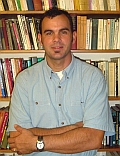
David Heath
Senior Lecturer, Spanish
(208) 282-2056
davidheath@isu.edu
David Heath, Senior Lecturer, Spanish. David Heath, Senior Lecturer MA Latin American Studies (University of Kansas), BA Spanish (Idaho State University). Mr. Heath teaches first and second year Spanish, and has taught Spanish for Health Care. He is also an Early College Program liaison for several area high schools and is the coordinator for Spanish 101-102. Mr. Heath lived in Puerto Rico for two years and has an interest in the Spanish-speaking cultures of the Caribbean.
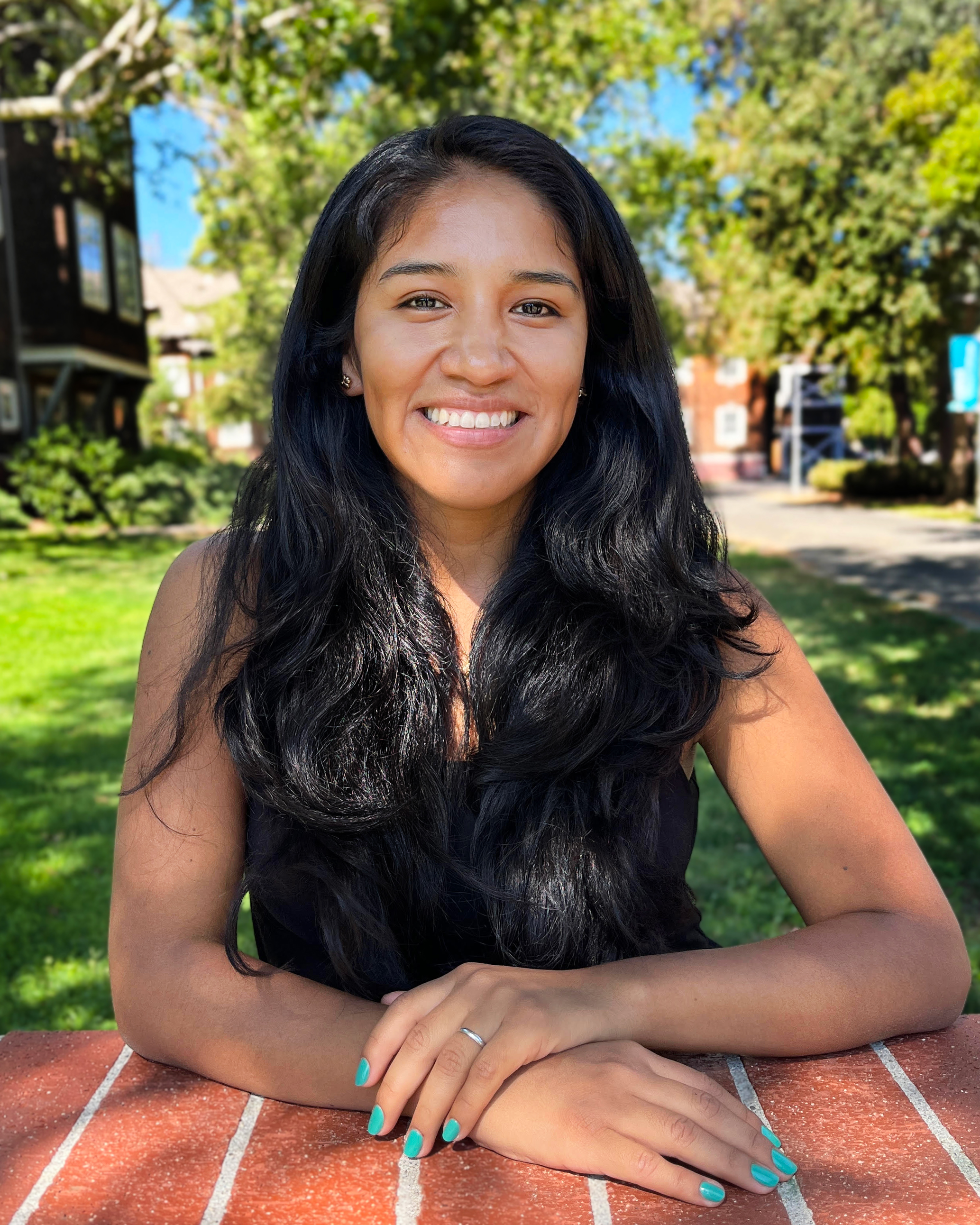
Maria Claudia Huerta Vera
Assistant Professor, Spanish
mchuertavera@isu.edu
Dr. Huerta Vera obtained her Ph.D. and M.A. in Spanish from the University of California, Davis; and her B.A. in History from the Pontificia Universidad Católica del Perú. Her research interests include memory studies, human rights, testimony and trauma, and representations of political violence in Latin America. Her doctoral dissertation, La memoria en el cine documental peruano: representaciones del conflict armado interno, focuses on the representations of the Peruvian Internal Armed Conflict (1980-2000) in documentary film. Her research explains how cultural and collective memory of the conflict is formed in Peru and brings to light voices that were not part of the Peruvian mainstream discussion but found a form of expression in documentary film.
Dr. Huerta Vera’s main goal as an instructor is to support her students’ academic success and personal well-being by creating a safe and supportive classroom environment that promotes curiosity, reflective thinking, and active participation. Her teaching highly emphasizes critical language awareness and multiliteracy pedagogies.
She is committed to fostering a diverse, equitable, and inclusive community at Idaho State University, where all varieties of Spanish are recognized and valued, and all emergent bilinguals feel safe and empowered.
.jpg)
Dr. Marin Laufenberg
Teaching Assistant Professor of Spanish and Director of Spanish MA Program
marinlaufenberg@isu.edu
Marin Laufenberg received her Ph.D. from the University of Wisconsin-Madison (2017). She has taught classes focusing on Spanish language, composition and conversation, Hispanic literature, and Spanish for the health and social services. She believes that by learning a language, you acquire a new window to understanding cultures and people. In her teaching, she likes using theatrical techniques, like role playing and dialogue creation. Dr. Laufenberg studies contemporary Latin American literature with a focus on Southern Cone performance and theatre. Her dissertation investigated the role of humor and laughter in dealing with trauma and violence in Argentine theatre. In addition to researching theatre, she also has extensive experience in the praxis of theatre as a member and co-founder of the UW-Madison Spanish language theatre group Teatro Décimo Piso. She has lived and studied abroad in Spain, Panama, and Argentina. In her free time, Dr. Laufenberg enjoys hiking with her family, cycling, whale watching, and exploring the tide pools along the coast of the Pacific Northwest.
.jpg)
Dr. H. Cathleen Tarp
Professor, Spanish | Spanish for Health Professions Advisor
(208) 282-3329
helentarp@isu.edu
Cathleen Tarp, Associate Professor, Spanish. Ph.D Romance Languages (University of New Mexico 1999); M.A. Hispanic Literature, (University of New Mexico 1996); B.A. English Literature (University of Idaho 1992). Dr. Tarp’s areas of specialization are the Spanish Middle Ages and Baroque. Current research interests include the grotesque, the Spanish prose romance, and narratology in the context of the development of prose fiction. Dr.Tarp is a certified medical interpreter and a qualified legal interpreter. She is also faculty advisor for Sigma Delta Pi, the National Spanish Honor Society, and the ISU student organization, Entrepeneurs of America.
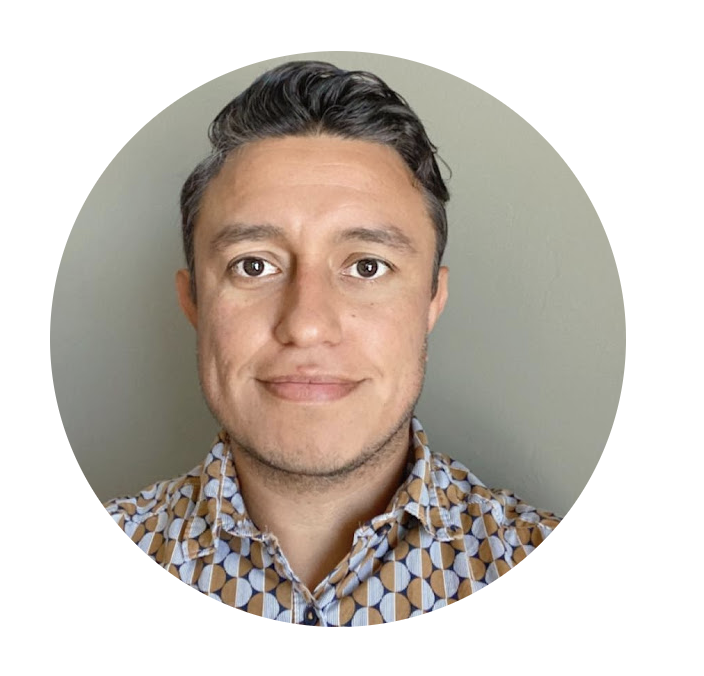
Dr. José Eduardo Villalobos Graillet
Assistant Professor, Spanish
josevillalobosgra@isu.edu
Ph.D., University of Toronto, 2022
José Eduardo Villalobos Graillet is an Assistant Professor of Spanish who specializes in Modern Peninsular Literature and Culture, with a focus on visual culture (film and television). He has authored the book La Celestina y el cine. Censura y recepción (1969-1996) (Iberoamericana Vervuert, 2023). His current research includes studying the international film and televisual adaptations of La Celestina; the censorship and reception of the Spanish film Las melancólicas (1971) directed by Rafael Moreno Alba; and the representation of cannibalistic gastronomy in La semana del asesino (1972), directed by Eloy de la Iglesia and The Horror of Dolores Roach (2023) directed by Aaron Mark.
At Idaho State University, Dr. Villalobos Graillet teaches various courses for the Spanish undergraduate program, including Elementary Spanish, Spanish for Heritage Speakers, Introduction to Hispanic Literature, and Survey of Spanish Literature and Culture. For the graduate program in Spanish, he teaches courses such as Film and Franquismo, The Cinema of Almodóvar, Gastronomy in Hispanic Film and Literature, Spain’s Contemporary History through Graphic Novels, Teaching Spanish as a Foreign Language, Film Adaptation, Rural Spain, Spain in Eurovision, and Contemporary Spanish Cinema.
Dr. Villalobos Graillet’s website: https://hispanismo.cervantes.es/hispanistas/284495/villalobos-graillet-jose-eduardo
.jpg)
Nancy Wells
Associate Lecturer
(208) 282-7729
nancywells@isu.edu
Nancy Wells, Associate Lecturer. M.A. Spanish Linguistics (BYU), B.A. Spanish Translation and Interpretation with a minor in International Relations (BYU).
Mrs. Wells teaches first and second-year Spanish. She has lived in Uruguay, Spain, and Mexico. Her interests include translation, interpretation, foreign travel, and international relations.
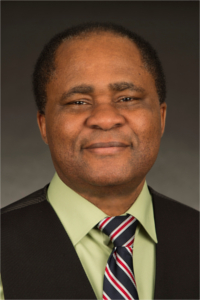
Raphael Chijioke Njoku
Professor - African History and Culture
208-282-4164
raphaelnjoku@isu.edu
LA 344
Education
Ph.D. Dalhousie University
Research Interests
African intellectual history, African social and political history, African philosophy, culture and development, democratization, social movements and comparative politics
Books
West African Masking Tradition and Diaspora Masquerade Carnivals: History, Memory, Symbols, and Transnationalism. NY: Rochester University Press, 2020.
United States and African Relations: 1400 to the Present. New Haven: Yale University Press, 2020.
Igbo in the Atlantic World: African Origins and Diasporic Destinations, coedited with Toyin Falola. Indiana University Press, October 2017.
The Igbo in an Age of Globalization: Reflections on Culture, Language, and Social Reordering, coedited with Chima J. Korieh. Glassboro, NJ: Goldline and Jacobs, 2016.
The History of Somalia. Westport: ABC-CLIO, Press, 2013.
Africa and the Wider World, coedited with Hakeem Ibikunle TIjani and Tiffany Fawn Jones. Boston: Pearson/Macmillan, 2010.
African History, coedited with Chima J. Korieh, Iowa: University Readers, Inc., 2010.
War and Peace in Africa: History, Nationalism, and the State, coedited with Toyin Falola. Durham, NC: Carolina Academic Press, 2010.
Missions, States, and Colonial European Expansion in Africa, coedited with Chima J. Korieh. New York: Routledge, 2007.
Culture and Customs of North Africa: Morocco. Westport: Greenwood Press, 2005
African Cultural Values and Igbo Political Leadership in Colonial Nigeria, 1900-1966. New York: Routledge, 2006.
Articles and Book Chapters
“The Conflation of Race and Propaganda in the Mobilization of Africans for World War II,” Journal of Asian and African Studies -JAAS (2021): 1-15.
“Nationalism, Decolonization, and Exilic Diplomacy: A Study of Kabaka Mutesa II of Uganda and Sultan Mohammed (Ibn Youssef) V of Morocco, 1940s-1963,” Journal of Colonialism and Colonial History – JCCH (Spring 2021): 1-27.
"Igbo-Ukwu." In Oxford Research Encyclopedia of African History. Oxford University Press. Article published in March 2019. doi: http://dx.doi.org/10.1093/acrefore/9780190277734.013.585.
"Onitsha Market Literature: Narrating Identity and Survival in a Colonial African City." In Narrative, Identity, and Academic Community in Higher Education, edited by Brian Atterberry et al. 31-46. New York: Routledge, 2017.
"Introduction." Igbo in the Atlantic World: African Origins and Diasporic Destinations. Bloomington: Indiana University Press, 2016), 7-16.
"Becoming African: Igbo Slaves and Social Reordering in Nineteenth-Century Niger Delta." In Igbo in the Atlantic World: African Origins and Diasporic Destinations. Bloomington: Indiana University Press, 2016), 99-122.
"The Making of Igbo Ethnicity in the Nigerian Setting: Colonialism, Identity, and the Politics of Difference.". Igbo in the Atlantic World: African Origins and Diasporic Destinations. Bloomington: Indiana University Press, 2016), 265-284.
“The Ahiara Declaration and the Faith of Biafra in a Postcolonial/Bi-Polar World, 1967-1970.” In Toyin Falola and Ogechukwu Ezekwem (eds.), Writing the Nigeria-Biafra War (London: James Curry, 2016), 62-80.
“Interrogating Discursive Constructions of African Political History: From the Precolonial to the Postcolonial,” in Kenneth Omeje (ed.), The Crisis of Postcoloniality in Africa (Dakar: Council for the Development of Social Science Research in Africa, 2015), 29-44.
"Eastern Nigeria and the Rise of a New Class of Ogaranyas (Wealthy Men) in the Late Nineteenth-century: A Biography of Chief Igwebe Odum of Arondizuogu (c.1860-1940)." Journal of African Economic History 36 (February 2012): 27-52.
"Neoliberalism in Microcosm: A Study of Precolonial Igbo of Eastern Nigeria." MBARI: The International Journal of Igbo Studies 1, no.1 (2008): 45-68.
"Civil Society and Igbo Traditional Politics: A Historical Survey of Age Grades, Secret Societies, Social Clubs, Women's Organizations, and Town Unions since 1900." International Journal of African Studies 6, no. 2 (2008): 15-28.
"Civil Society in the Islamic Kingdom of Morocco." Journal of International Review of Politics and Development 5, no.2 (2007): 37-53.
"Don C. Ohadike: The Man, His Intellectual Legacy and African Historiography." Journal of Dialectical Antropology 10, no. 4. (August 2007): 32-50.
"Deadly Ethnic Violence and the Imperiative of Federalism an Power-sharing: Could a Consociation Hold in Rwanda?" Journal of Commonwealth Comparative Politics 43, no. 1 (March 2005): 82-101.
Awards
Named an ISU Outstanding Researcher, 2017.
Library Residency Fellowship, Indiana University Bloomington, 2009.
Victor A. Olurunsola Endowed Research Award for Young Scholars, 2007.
Eleanor Young Love Faculty Award for Distinguished Scholarship, 2006.
NEH’s Schomburg Center Residence Fellowship, 2006-7.
West African Research Council Grant, 2001.
Government and Opposition Essay Prize, 2001.
Courses
HIST 1120 Global History Since 1500
HIST 2255 African History and Culture
HIST 4491 Seminar
IS 3300 Travel and Study Abroad
IS 3350 International Symposium
IS 4493 Senior Thesis
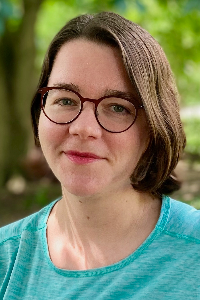
Karliana Sakas
Visiting Assistant Professor
karlianasakas@isu.edu
Karliana Sakas is a scholar of the early modern Spanish empire, with a particular focus on the intersection between history and fiction. Her research interests include the literature and cultures of colonial Latin America and early modern Spain, indigenous narratives of the Spanish exploration of North America, and historical fiction. She has published articles in the Revista de Literatura Mexicana Contemporánea, Bulletin of Spanish Studies, and eHumanista.
Anthropology Emeritus
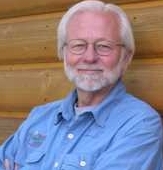
*Richard Holmer, Ph.D.
Professor Emeritus
richardholmer@isu.edu
Background
Rick Holmer is professor of anthropology at Idaho State University where he has taught since 1983. He earned a Ph.D. in 1978 from the University of Utah and has conducted archaeological research in Mexico, Samoa, the American Desert West, and Alaska.
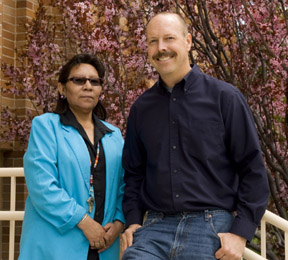
*Chris Loether, Ph.D.
Professor Emeritus
208-282-4859
chrisloether@isu.edu
Graveley 265
Dr. Loether is the Director of the American Indian Studies Program, Director of the Linguistics Program, and Co-Director of the Shoshoni Language Project. Dr. Loether specializes in Uto-Aztecan, Celtic, Germanic and Semitic languages. He has worked specifically with the Western Mono, Owens Valley Paiute, Shoshoni and Welsh languages. His other specialties include sociolinguistics, ethnopoetics, lexicography, language revitalization, and the ethnology of California and Great Basin Indians.

